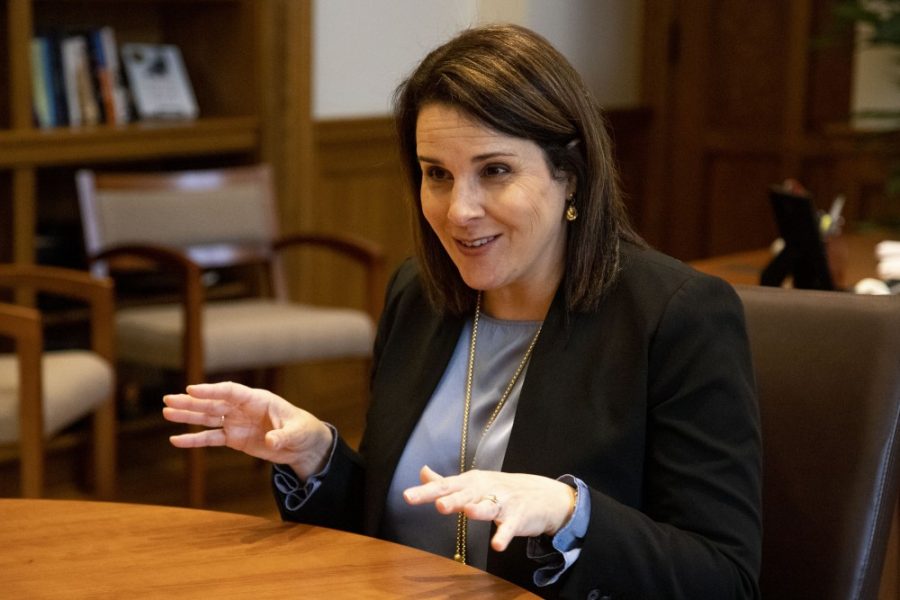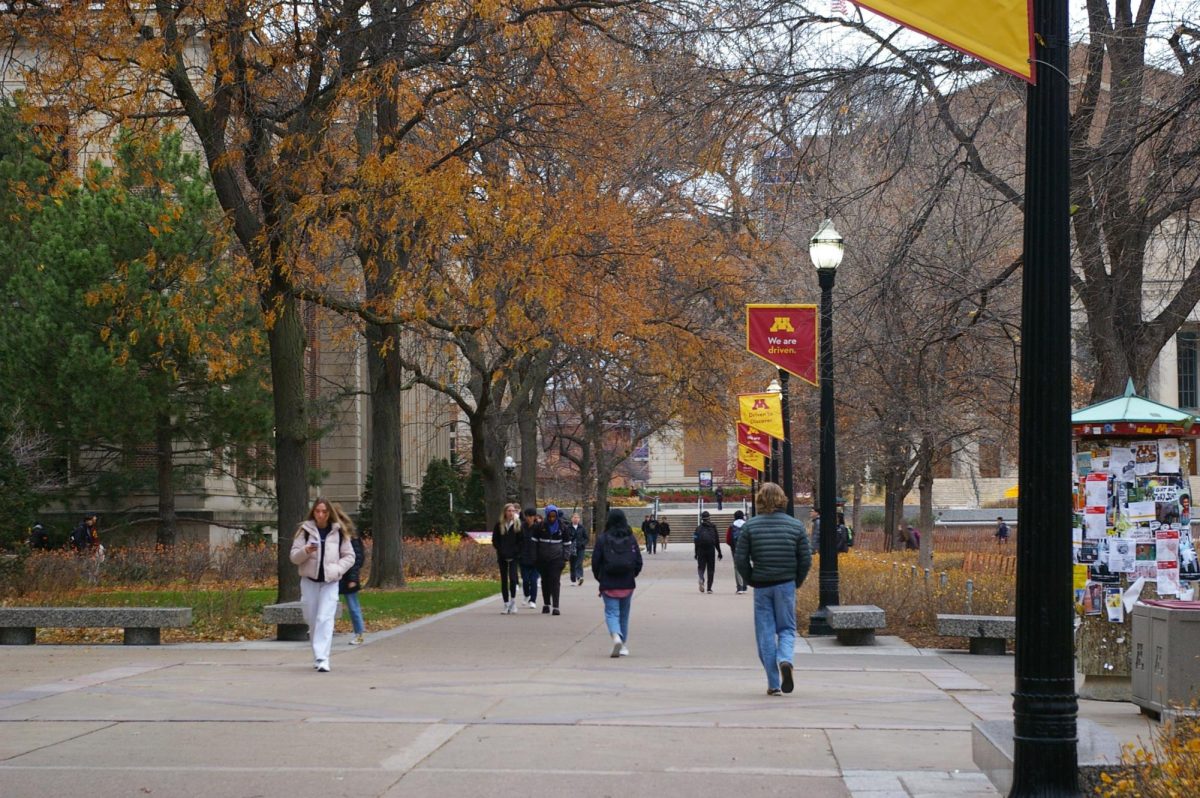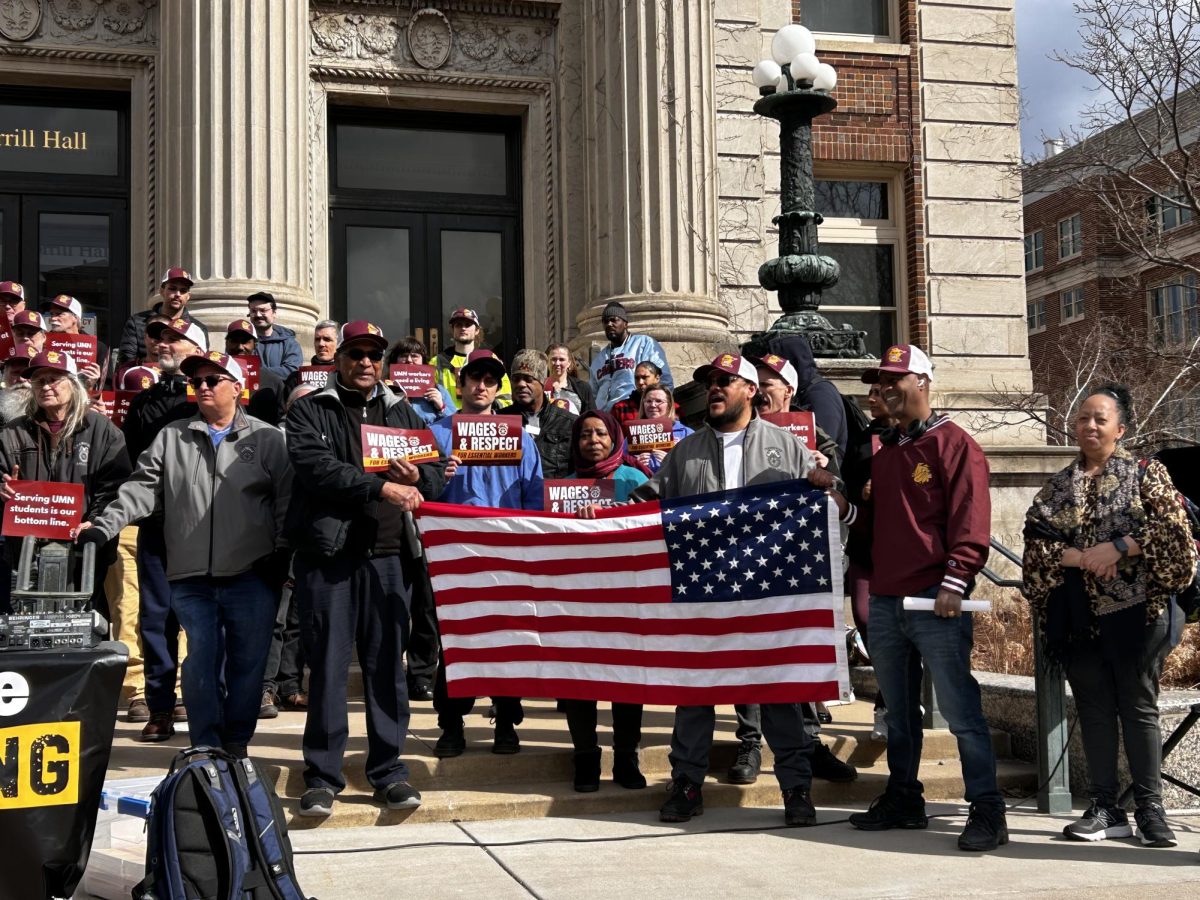In an interview with the Minnesota Daily on Monday, University of Minnesota President Joan Gabel responded to student campus safety demands to cut ties with the Minneapolis Police Department (MPD) following the killing of Amir Locke.
Gabel also explained the board’s decision to update her contract in December 2021 to include a salary increase and additional benefits. Gabel said the University’s goal is for all employee wages to reflect market salaries.
What is your response to the police killing of Amir Locke and recent student demands to cut University ties with the Minneapolis Police Department and establish a campus Civilian Police Accountability Council (CPAC)?
“Amir Locke’s death is a tragedy, and it’s an incredible frustration that it’s happening again. We expect more and deserve better as a community, certainly so did he and his family. We’re very heartened by the quick move to end no-knock warrants and are optimistic about how that will contribute to improved policing.
For the students who are seeking the complete disengagement with MPD and a CPAC, that’s one specific group of students. We have met with them multiple times. We have been very consistent in our response that we hear from many students who feel differently. We are a large, complex community, and it’s our obligation to serve our community as a whole and the way we do that is with shared governance.”
Do you know the specific next steps for implementing the M Safe committee’s recommendations?
“The M Safe Implementation Committee is responsible for implementing the campus safety recommendations from Dr. Cedric Alexander’s report.
“The immediate next step was their presentation of the report. That just happened last week, so now we take the report and we start breaking it down into who will carry it forward because the M Safe committee itself was intended to be a bridge committee, and they’ve completed that work and now what remains to be done would require ongoing oversight, so there’s no immediate, low-hanging fruit next step.
The next steps are more around policy and practice, but one of the most immediate things that we know you’ll probably see quicker is that M Safe and Dr. Alexander, our external reviewer, have recommended that UMPD double down on their communication so that people know them and are aware of who they are, and they become a more accessible member of our community.”
The Board of Regents recently passed a resolution for the repatriation of the Native American Mimbres Collection currently housed at the Weisman Art Museum. What motivated the University to reexamine this now?
“We’ve had a deep recommitment to our work with our tribal community partners. We’ve been working with them in historically new ways. [This is] where they have advocated for our reexamination, there are legal requirements associated with this and it’s also just a part of our overall commitment to acknowledging our complicated history and moving forward in new ways in our relationship with the tribes.”
What do current consultations with associated Native American tribes look like and how long do you expect this process to take?
“The consultation with the Minnesota tribes is on a regular basis. The consultation around the repatriation was much broader because those artifacts and items did not come from Minnesota. So that very much broadened who might be an interested tribe or party, and so the Mimbres report has a very extensive list of all the tribes that were consulted and that consultation continues. Some of the items have left our possession and are on their way, but completion [is] hard to say exactly because we’re not in total control of all the necessary next steps.”
The board also passed an updated renaming policy that allows campus buildings, fellowships and other entities to be renamed after a 75-year period. Now that this guiding policy has been established, what are the next steps needed to actually rename campus buildings?
“There are two different ways under this new policy that a building’s name might change. One is simply because time has passed and it’s someone else’s turn [to be honored]. The other way is if information comes to light that calls the question of whether the party who was honored with the naming should continue to have that honor. That one has no time associated with it. For buildings that are more than 75 years old, this is a brand new policy, and so there’s some backroom administrative policy work that needs to be done, and one of the biggest details that has to be attended to is whose name would go on the building once a name comes off.
We’ve charged the All-University Honors Committee to start that administrative work and to also build a pool of next generation honorees because we won’t take a name off of a building until we have another name to put on. That could take a little while, a few months I would say.
For buildings where the honoree is alleged to have engaged in bad acts, that process can now start and that’s already dictated in the policy. It would require the claim to be made, the review to be done, a recommendation to come from the administration and then the board to vote. So that could still take a few months, but the work could start any time.”
The board also approved a new employment contract in December for the president’s position, which comes with an increase in pay and benefits. How have you responded to students, staff and faculty who were upset about wages and salaries being comparatively low to the salary that you now receive?
“I’ve been very consistent in my approach to salary at every level of the institution, which is that it’s driven by market. My salary had fallen below market, and so our board adjusted it. I’m still one of the lowest paid in my peer group, so that’s who I compare myself to, and I expect to be paid according to that market and according to how my annual reviews go. The board’s review of my performance was public, and they decided that I should sit within the market of my peer group accordingly.
I think we should do the same thing for every level of the institution. There’s a review underway around student wages, grad students are advocating for a review of their stipends, staff want their pay to average around the market and so do faculty. That is what we are perpetually doing as we work through budget challenges, so we can’t always do it immediately, and there are only so many revenue sources in order to make these things happen. But it is our goal that everyone would sit in a reasonable position within the market, myself included.”
What does the decision making process look like in terms of COVID-19 safety decisions? Who do you regularly consult with, what impute do you hear from other stakeholders and who ultimately gets the final say in these decisions?
“The main consultation group is the Emergency Management Policy Committee. The existence of this committee predates COVID, but we added members who had specific expertise, and we’ve been working together for two years now. In the beginning, it was every day, sometimes more than once a day. Now, it’s more like every other week now that things are a little more … stable. There are over 20 people in that group. It’s faculty, staff, chancellors from across the systems, our chief medical officer, there’s HR in there, there’s finance in there.”
Right now, some universities and cities across the country have started to loosen vaccine and mask requirements. Is the University considering loosening current requirements, and what would be the criteria for being able to lift the vaccine requirement or mask requirement?
“The way we institute the mask requirement is the same way we would end the mask requirement, which is based on data and science and what’s being recommended by our campus epidemiologists and clinicians. Then also what’s happening with state public health guidance and federal public health guidance. So we are very pleased to see numbers coming down. We’re glad for it, and if it gets to the point where we think that it would be safe to not have masks on in the classroom, we would recommend that they come off. We’re not quite there yet. We are starting to talk about it, but we want it to get a little better.”
This interview has been edited for length, grammar and clarity.



















